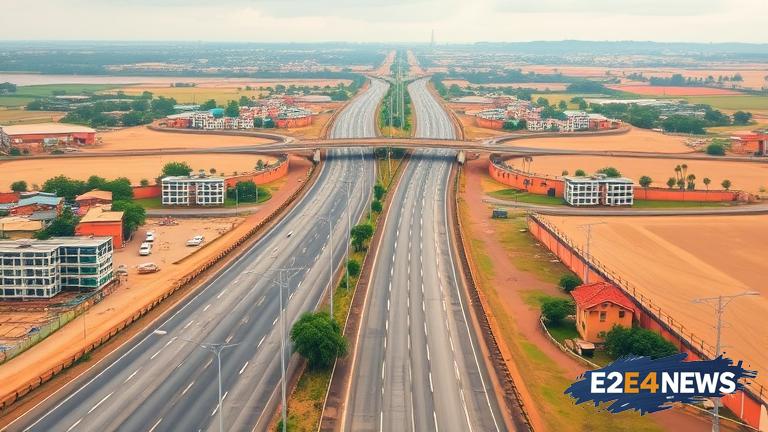The Accra-Kumasi dualisation project, a critical infrastructure development initiative aimed at enhancing road safety and reducing travel time between Ghana’s two major cities, has been abandoned. Asenso Boakye, a prominent figure, has strongly criticized the government for neglecting this vital project. The project, which was expected to significantly improve the country’s transportation network, has been left unattended, leaving many to wonder about the government’s priorities. The Accra-Kumasi highway is a major artery that connects the country’s capital to the second-largest city, Kumasi, and is a critical route for trade, commerce, and tourism. The dualisation project was intended to reduce congestion, improve road safety, and increase the efficiency of transportation. However, the project’s abandonment has raised concerns about the government’s commitment to infrastructure development. Asenso Boakye’s criticism of the government’s handling of the project has sparked a heated debate about the country’s development priorities. The government’s decision to abandon the project has been met with widespread disappointment and frustration, with many calling for a rethink of the country’s infrastructure development strategy. The Accra-Kumasi dualisation project is not the only infrastructure project that has been abandoned in Ghana, with several other initiatives facing similar challenges. The country’s infrastructure development challenges are complex and multifaceted, requiring a comprehensive and coordinated approach to address. The government’s ability to deliver on its infrastructure development promises is critical to the country’s economic growth and development. Asenso Boakye’s criticism of the government’s handling of the Accra-Kumasi dualisation project highlights the need for greater transparency and accountability in the management of infrastructure development projects. The government must prioritize the completion of critical infrastructure projects, such as the Accra-Kumasi dualisation project, to ensure that the country’s transportation network is safe, efficient, and reliable. The abandonment of the project has significant implications for the country’s economy, with the potential to impact trade, commerce, and tourism. The government’s decision to abandon the project has also raised concerns about the country’s ability to attract foreign investment, with investors increasingly looking for countries with well-developed infrastructure. Asenso Boakye’s criticism of the government’s handling of the project has sparked a national conversation about the country’s development priorities and the need for greater investment in infrastructure development. The government must take immediate action to address the challenges facing the Accra-Kumasi dualisation project and ensure that the project is completed as soon as possible. The completion of the project is critical to the country’s economic growth and development, and the government must prioritize its completion. The Accra-Kumasi dualisation project is a vital infrastructure development initiative that requires immediate attention and action. The government’s ability to deliver on its infrastructure development promises is critical to the country’s future prosperity and development. The abandonment of the project has significant implications for the country’s economy and development, and the government must take immediate action to address the challenges facing the project. The government’s decision to abandon the project has raised concerns about the country’s commitment to infrastructure development and its ability to deliver on its promises. Asenso Boakye’s criticism of the government’s handling of the project has highlighted the need for greater transparency and accountability in the management of infrastructure development projects. The government must prioritize the completion of critical infrastructure projects, such as the Accra-Kumasi dualisation project, to ensure that the country’s transportation network is safe, efficient, and reliable.





